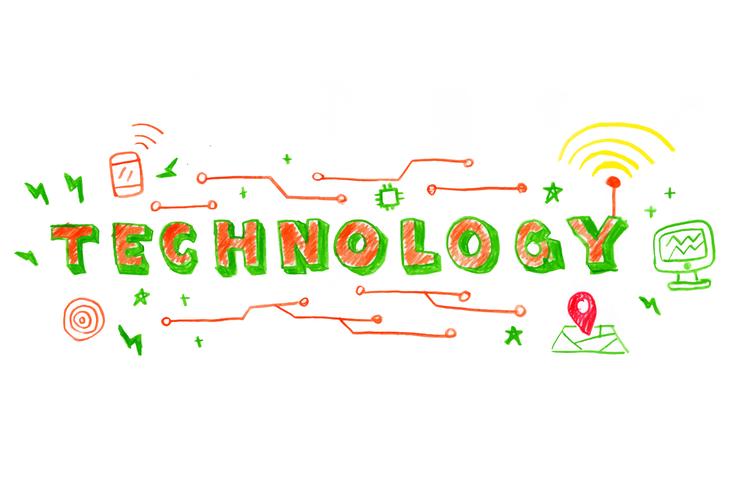Tiếp theo trong series IELTS Vocabulary của Langgo là từ vựng IELTS chủ đề Technology. Chủ đề Technology là một trong những chủ đề rất phổ biến, có tần suất xuất hiện nhiều trong cả 4 task của IELTS. Việc bổ sung cho mình các kiến thức từ vựng sẽ giúp cho bạn học dễ dàng diễn đạt ý tưởng của mình một cách trôi chảy và đúng trọng tâm hơn. Hãy cùng bắt tay vào học nào!

I. Từ vựng IELTS chủ đề Technology
- to access websites/email: to locate: truy cập trang web
- to back up files: to make a copy of files in case of a computer problem: sao lưu dữ liệu
- to boot up: to start a computer: khởi động máy tính
- to bookmark a webpage: to mark a webpage for future reference: đánh dấu trang
- to browse websites: to look at websites: lướt web
- a computer buff: an expert computer user: chuyên gia máy tính
- to crash: to suddenly stop working: tạm ngưng hoạt động
- to cut and paste: to move text or images from one place in a document to another place: cắt và dán (chữ hoặc ảnh) trên máy tính
- a desktop PC: a computer that isn’t portable and remains in situ on a desk: máy tính để bàn

- digital editing: to edit digital materials like audio or video files: Chỉnh sửa các vật liệu số như audio hoặc video
- download (podcasts): to save a copy of a file from the internet to your own device: Lưu tài liệu từ internet về máy tính/ thiết bị điện tử của bạn
- to enter a web address: to type the address of a website into the address bar of your browser: Gõ địa chỉ của một trang web vào thanh tìm kiếm trên trình duyệt của bạn
- a gadget: a technological tool like a mobile phone or camera: Một thiết bị như là điện thoại di động hoặc máy ảnh
- to go online: to start using the Internet: Sử dụng internet
- high-spec (laptop): powerful computer with top quality components: máy tính xách tay
- Internet security: Internet safety: an ninh mạng
- intranet: a network of connected computers within an organisation that is not accessible by unauthorised visitors: Mạng máy tính nội bộ
- to navigate a website: to find your way around a website: Điều phối xung quanh trang web
- operating system: the software that tells the computer how to work: Hệ điều hành máy tính
- send an attachment: send an email with an accompanying file: Gửi file đính kèm cùng với email
- social media: media used to interact with other people such as Facebook or Twitter: mạng xã hội

- to surf the web: to look at a series of websites one after the other: luớt web
- a techie: somebody who has an interest in technology: Người đam mê công nghệ/ chuyên viên công nghệ
- to upgrade: to obtain a more powerful or feature-rich computer or piece of software: Nâng cấp máy tính hoặc phần mềm
- video conferencing: to see and hear people from different locations using the Internet: Đàm thoại trực tuyến
- wireless hotspot: a public place where you can access the Internet: Nơi công cộng mà bạn có thể truy cập internet
- wireless network: a network where users can access the Internet without the use of fixed cables: Mạng không dây
- word processing; producing written texts on a computer: Tạo ra chữ viết trên máy tính
II. Từ vựng chủ đề Technology mô phỏng trong IELTS Speaking
Part 1-style questions
Examiner: Do you enjoy using technology?
Stephan: Well … I wouldn’t call myself a techie or a computer buff but I enjoy using computers … I’d like to find out more about how they work … when my computer crashes I never know what to do.
Examiner: Do you use the Internet for your studies?
Sophie: Yes … I’d be lost without it … I do lots of video conferencing to practise speaking and social media like Facebook is a good way to meet up with other students … and I download podcasts that teach English vocabulary and grammar.
Examiner: Do you have your own computer?
Tania: Yes … I have a Macbook Pro … I use it all the time … for word processing … browsing websites and catching up with TV programmes I’ve missed.
Part 2-style task
Describe an item of technology you have that is very important. You should say:
- what the technology is
- when you got it
- how often you use it
and say how different your daily life would be without it.
Mattie: I don’t have many gadgets … just a computer … a laptop and my mobile phone … but I’ll talk about my computer as it’s so useful … it’s funny really … 2 years ago I was still learning to use computers … how to use email … send attachments how to access websites … then I decided to do a digital editing course for video and photography … and so I bought the laptop when I started the course … my husband had a desktop PC but it was very slow so I decided to upgrade to a powerful one because we do a lot of video editing on the course … it’s a high-spec laptop … very fast … the latest operating system … it boots up really quickly and it’s fun to use so it makes working a pleasure … I’ve become a competent computer user now … if I didn’t have it I daresay I’d have to spend more time at college using their computers … but on the positive side I suppose I’d read a lot more if I didn’t have it … I probably waste a lot of time surfing the web … but hopefully I won’t have to be without it …
Part 3-style questions
Examiner: What do you think are the important things people need to learn when they start using computers?
Alejandro: Well … there are things like how to use the Internet … how to enter a web address … how to navigate websites … that kind of thing but it’s also important to know how to back up your files in case your computer crashes … and all about Internet security.
Examiner: What kind of technological developments have made the biggest impact on our lives?
Faydene: In my lifetime it has to be the Internet of course but I also think wifi has made a huge difference to how we interact with the Internet … wireless networks at home and public wifi hotspots mean we can go online easily … access our mail … log into our work intranet and basically be connected wherever we are.
Examiner: Do computers make it much easier to study?
Jane: Definitely yes … researching information is much easier with the Internet .. you can bookmark webpages for future reference and writing essays is much easier … being able to cut and paste sections of text means you can experiment with organisation … so yes … compared to years ago when you had a pile of books on your desk and a pen and paper … it’s now much easier.








